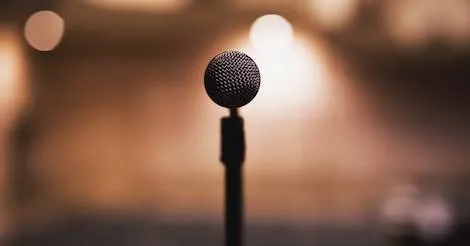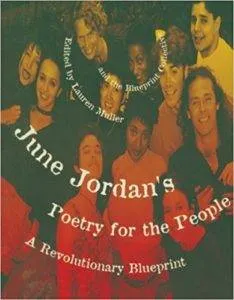
Reading Protest Poetry in Preparation for Hamilton
This content contains affiliate links. When you buy through these links, we may earn an affiliate commission.
I am thisclose to finally seeing Hamilton, and I’m going in an almost virgin. As in: I haven’t read any in depth synopsis, listened to the soundtrack, read the reviews. I did this on purpose, and I stand by my decision. (After the show I plan on reading these excellent post-Hamilton book recommendations to keep that vibe going.)
But until then, I’m setting the mood by reading protest poetry.
My love of poetry is long and deep and has grown with me over the years. I was always a fan of the romantic stuff from across the pond that was favored in high school: college introduced me to poetry by people of (my) color, people like me. Maya Angelou. Alice Walker. Nikki Giovanni. Audre Lorde.
And then I took a class with the late, beloved poet/activist/professor/phenomenal woman June Jordan, and I was forever changed.
 Poetry for the People was to my education what Hamilton is to the world today. It opened my eyes to poets from Latin America, from Palestine, from down the street. June Jordan brought the world of Arab and American poetry to the class, challenging us to read from and think of a different worldview – one that remarkably mirrored the struggle people of color in this country go through. Displacement. Distrust. Misunderstanding. Uprising. Freedom.
That’s a simplistic way of saying I felt the connection among marginalized people, and understood that poetry was one way that we could express ourselves – raw, pain, anger, urgency, protest.
And that defines protest poetry for me. It hurts, it makes me mad, it makes me think, it makes me cry, it empowers me.
Like this line from “alternate names for black boys”:
Poetry for the People was to my education what Hamilton is to the world today. It opened my eyes to poets from Latin America, from Palestine, from down the street. June Jordan brought the world of Arab and American poetry to the class, challenging us to read from and think of a different worldview – one that remarkably mirrored the struggle people of color in this country go through. Displacement. Distrust. Misunderstanding. Uprising. Freedom.
That’s a simplistic way of saying I felt the connection among marginalized people, and understood that poetry was one way that we could express ourselves – raw, pain, anger, urgency, protest.
And that defines protest poetry for me. It hurts, it makes me mad, it makes me think, it makes me cry, it empowers me.
Like this line from “alternate names for black boys”:
 Poetry for the People was to my education what Hamilton is to the world today. It opened my eyes to poets from Latin America, from Palestine, from down the street. June Jordan brought the world of Arab and American poetry to the class, challenging us to read from and think of a different worldview – one that remarkably mirrored the struggle people of color in this country go through. Displacement. Distrust. Misunderstanding. Uprising. Freedom.
That’s a simplistic way of saying I felt the connection among marginalized people, and understood that poetry was one way that we could express ourselves – raw, pain, anger, urgency, protest.
And that defines protest poetry for me. It hurts, it makes me mad, it makes me think, it makes me cry, it empowers me.
Like this line from “alternate names for black boys”:
Poetry for the People was to my education what Hamilton is to the world today. It opened my eyes to poets from Latin America, from Palestine, from down the street. June Jordan brought the world of Arab and American poetry to the class, challenging us to read from and think of a different worldview – one that remarkably mirrored the struggle people of color in this country go through. Displacement. Distrust. Misunderstanding. Uprising. Freedom.
That’s a simplistic way of saying I felt the connection among marginalized people, and understood that poetry was one way that we could express ourselves – raw, pain, anger, urgency, protest.
And that defines protest poetry for me. It hurts, it makes me mad, it makes me think, it makes me cry, it empowers me.
Like this line from “alternate names for black boys”:
17. a mother’s joy & clutched breath.
Or this, from “Maqam”:A child
in Syria has amputated legs because he has ventured
into a minefield to eat grass. He still has two eyes,
two arms, a mouth.
Hamilton brought spoken word and verse back into the conversation. And so in honor of that, in celebration of the tradition, I’d like to share a group of protest poems. Brought to you full text by the excellent Poetry Foundation, “committed to a vigorous presence for poetry in our culture.”Protest Poetry
Poem about My Rights, by June Jordan
Maqam, by Zeina Hashem Beck
alternate names for black boys, by Danez Smith
the right way to speak, by Jacqueline Woodson
Not one more refugee death, by Emmy Pérez
Arise, Go Down, by Li-Young Lee
That Loud-Assed Colored Silence: Modernity #2, by Douglas Kearney
Borderbus, bu Juan Felipe Herrera
Rosa Parks, by Nikki Giovanni
Prayer, by Francisco X. Alarcón









